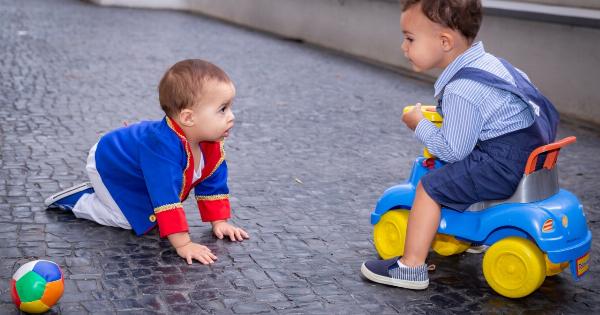Memory development is a fascinating aspect of the cognitive development of infants. It is intriguing to understand how their memory skills begin to develop and how it progresses over time.
In this article, we will explore the timeline of memory development in infants and the factors that influence this process.
1. Early memory abilities in infants
During the first few months of life, infants are primarily focused on their immediate sensory experiences. They have limited memory capacity and rely heavily on their caregivers for survival.
However, research suggests that even newborns can exhibit certain memory capabilities. For example, they can recognize their mother’s voice or show preferences for familiar faces.
2. The emergence of recognition memory
Around the age of 2 to 3 months, infants start demonstrating recognition memory. This is the ability to recognize a previously encountered stimulus or event.
For instance, they may display familiarity with a toy they have seen before or respond differently to a familiar person compared to a stranger. Recognition memory is crucial for their ability to form attachments and build relationships.
3. Short-term memory and working memory
As infants reach the 6-month mark, their memory skills become more sophisticated. They can retain information for short periods, which is known as short-term memory.
For instance, if you hide their favorite toy underneath a blanket, they can remember its location and search for it. Additionally, their working memory starts developing, which refers to the ability to temporarily hold and manipulate information in mind. This lays the foundation for problem-solving and learning new tasks.
4. The development of long-term memory
Between the ages of 9 and 24 months, infants begin to exhibit long-term memory. Long-term memory refers to the storage of information over a longer duration. This milestone allows them to recall events, objects, and people from their past experiences.
They can remember the sequence of events, such as what happened before or after a particular event.
5. Factors influencing memory development
Several factors influence the development of memory skills in infants:.
5.1. Maturation of the brain
The maturation of the brain structures involved in memory, such as the hippocampus and prefrontal cortex, plays a significant role in memory development.
These areas undergo rapid development during early childhood, which facilitates memory encoding and retrieval.
5.2. Environmental stimulation
Infants exposed to a rich and stimulating environment tend to have better memory skills. Engaging in activities that involve exploring the surroundings, playing with toys, or interacting with caregivers enhances their memory development.
The more varied their experiences, the more opportunities they have to store and recall information.
5.3. Social interactions
Social interactions play a crucial role in memory development. Infants who engage in frequent and positive interactions with caregivers tend to have better memory skills.
These interactions provide opportunities for joint attention, language development, and the formation of emotional bonds, all of which contribute to memory enhancement.
6. Strategies to support infants’ memory development
While memory development largely occurs naturally, caregivers can employ strategies to support and enhance infants’ memory skills:.
6.1. Establish a routine
Creating a predictable routine helps infants anticipate events, promoting the formation of memory. Regular activities, such as mealtime and bedtime, provide a structured environment for encoding and retrieving information.
6.2. Use repetitive and playful activities
Repetitive activities, such as reading books or singing rhymes, help reinforce memory formation. Playful activities involving toys or objects of interest provide opportunities for infants to engage in active exploration and memory recall.
6.3. Encourage social interactions
Facilitating social interactions with caregivers and peers stimulates infants’ memory development. Engage in conversations, sing songs together, and encourage joint play to enhance their memory skills while fostering emotional connection.
6.4. Provide a safe and stimulating environment
Ensure that the environment is safe and conducive to exploration. Offer age-appropriate toys, games, and activities that encourage memory formation and retention. Rotate toys regularly to maintain novelty and keep their interest intact.
7. Conclusion
Infants begin to develop memory skills from a very early age, with recognition memory emerging within the first few months.
As they grow, their memory capacity expands, alongside the development of short-term memory, working memory, and long-term memory. The maturation of brain structures, environmental stimulation, and positive social interactions significantly influence memory development.






























